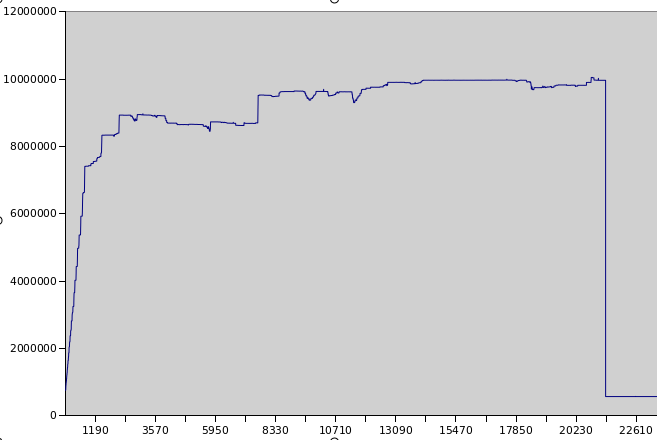The history command seems to take a veeeeeeeery long time. My repository has on the order of 1M files (almost all files have only one version) and 7TB data.
$ time duplicacy_linux_x64_2.6.1 history path/to/file
Storage set to b2://<redacted>
download URL is: https://f001.backblazeb2.com
170: 24300027 2015-08-02 19:59:46 f38d2dae0ffbec73444acb2749404dd9cbc068c3ea59ca51936d530ac27b34e2 path/to/file
171: 24300027 2015-08-02 19:59:46 f38d2dae0ffbec73444acb2749404dd9cbc068c3ea59ca51936d530ac27b34e2 path/to/file
172: 24300027 2015-08-02 19:59:46 f38d2dae0ffbec73444acb2749404dd9cbc068c3ea59ca51936d530ac27b34e2 path/to/file
(many lines omitted)
206: 24300027 2015-08-02 19:59:46 f38d2dae0ffbec73444acb2749404dd9cbc068c3ea59ca51936d530ac27b34e2 path/to/file
207: 24300027 2015-08-02 19:59:46 f38d2dae0ffbec73444acb2749404dd9cbc068c3ea59ca51936d530ac27b34e2 path/to/file
current: 24300027 2015-08-02 19:59:46 path/to/file
real 412m39.805s
user 325m38.754s
sys 4m38.362s
7 hours to get the history of one file that hasn’t changed seems like a very long time! Is this a quirk of the Backblaze B2 backend or a general problem? Also, how much $$ did I just add to my B2 bill by doing that?
Related: is there a better way to find a file or probe the existence of a file?

